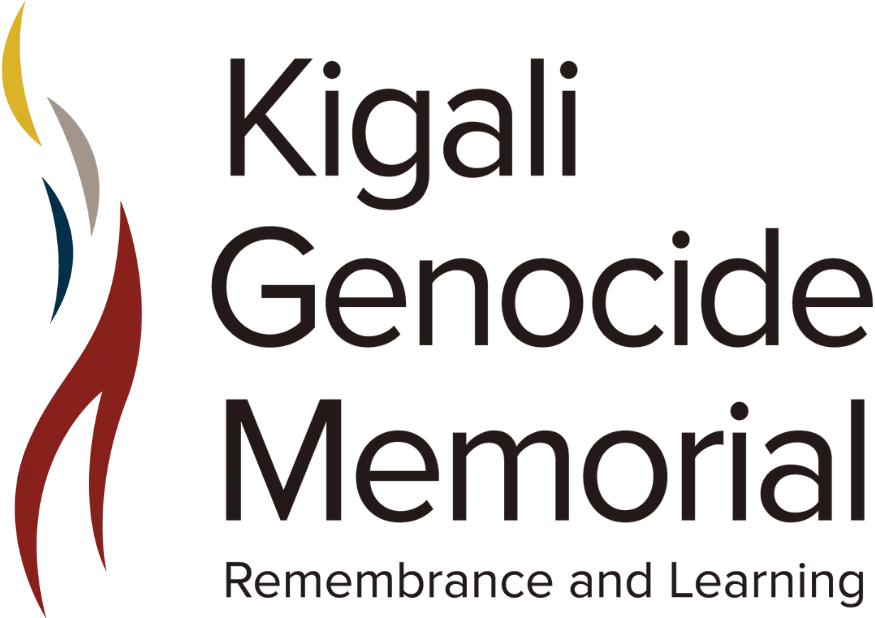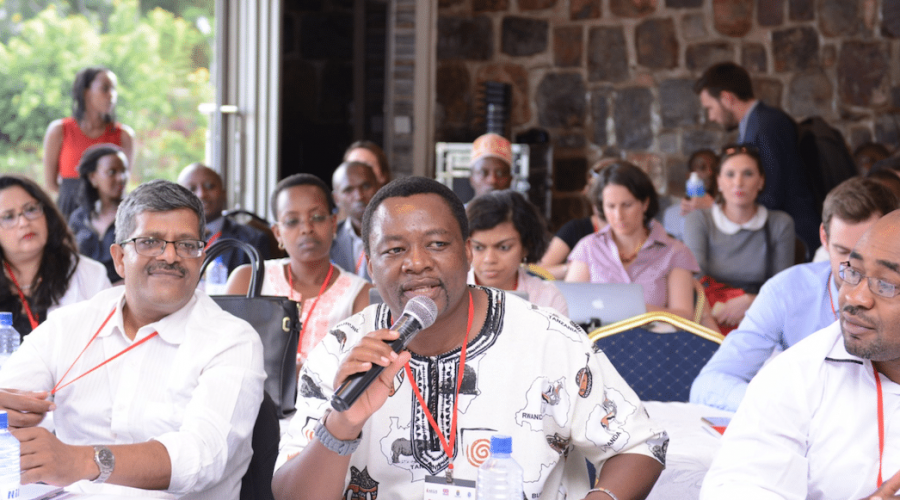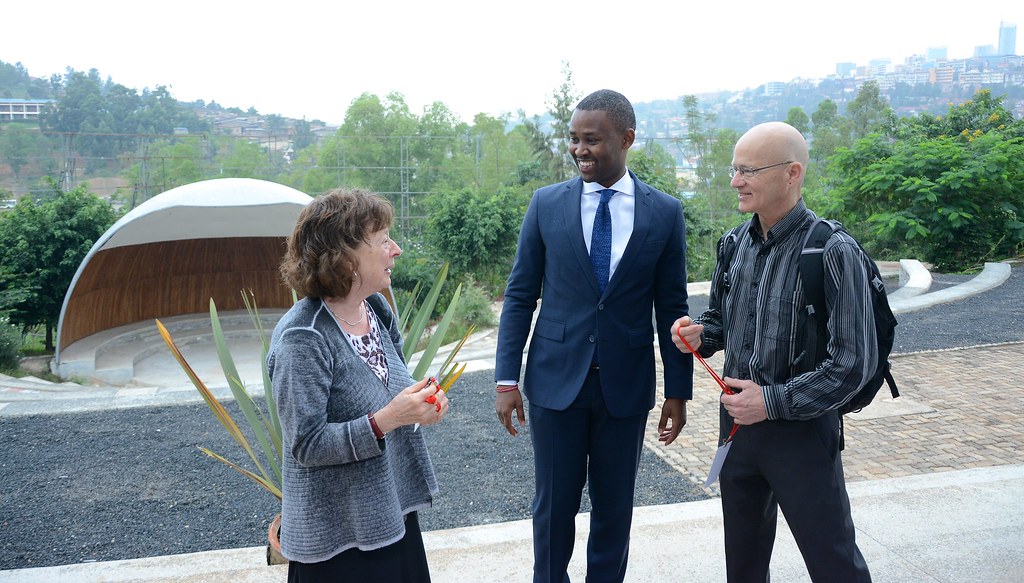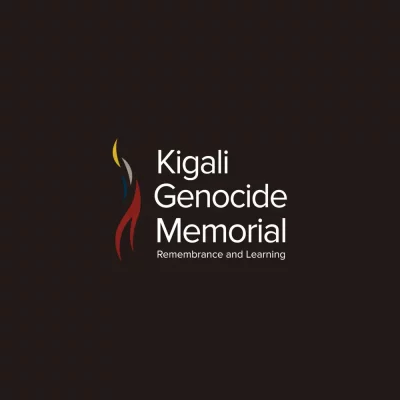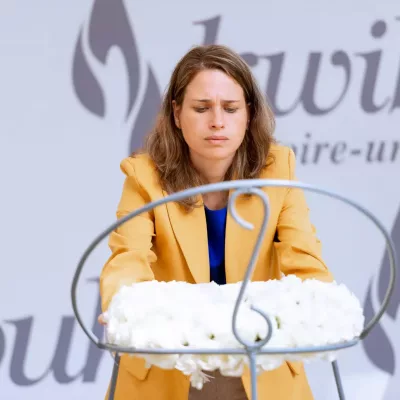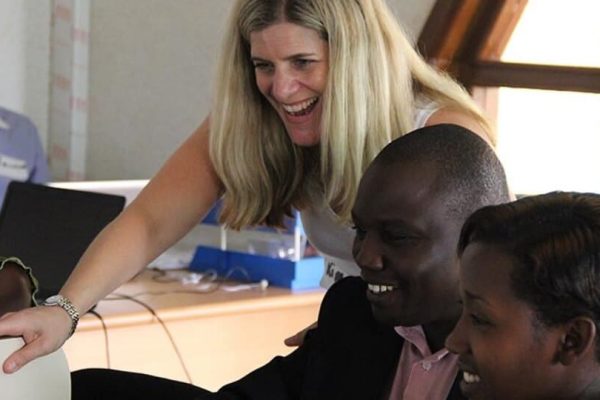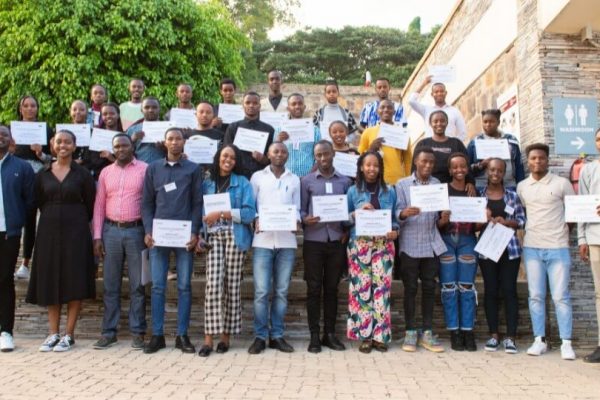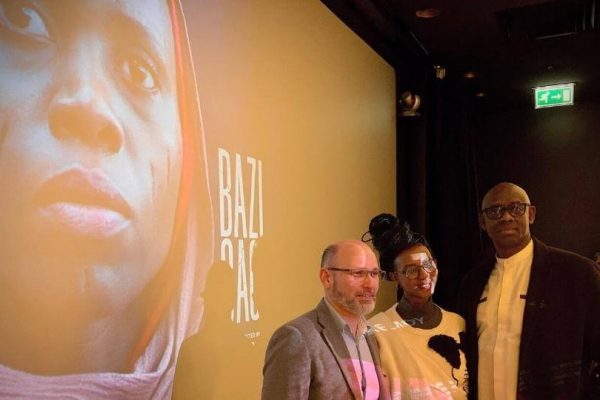The three-day Aegis Trust Peace Education colloquium at the memorial began yesterday with a focus on the importance of investing in peace. Funded by the UK Government, the conference has assembled more than 100 local and international experts to discuss the role of peace education in preventing conflict and mass atrocity. It is part of Aegis’ worldwide efforts to build a generation of champions of humanity by investing in world class peace education.
Welcome
Opening the conference, Aegis Trust CEO Dr James Smith thanked both the experts and partners for attending this important gathering and for sharing expertise and skills for sustainable peace, in Rwanda and abroad.
“Peace education requires a strong evidence base, both to ensure best practice in Rwanda and to encourage its adoption across Africa and the wider international community. This is the main reason we are here; to share and discuss existing tools, methodology and content that contributes to best practice in peace education,” Dr Smith said.
Opening Panel
Dr Smith welcomed panelists on stage for an interactive discussion, giving speakers the chance to share insights from their own work in peace education. The panel included Rwanda’s State Minister of Education, Isaac Munyakazi; Kenny Osborne, Deputy Head of DFID Rwanda; Mikael Boström, Head of Development Cooperation, Swedish Embassy to Rwanda; and Johan Debar, Chargé d’Affaires of the Kingdom of Belgium Embassy to Rwanda.
Asked why the Government of Rwanda has placed an emphasis on Peace and Values education, Minister Munyakazi Isaac said: “Looking back at history of Rwanda, we should learn from the experience. Knowing the divisionism that was put into teaching of our children previously, our mission after the Genocide against the Tutsi was to transform people through education with a focus on critical thinking and positive values. This is why we supported peace education and why it has been integrated into the school curriculum.”
Kenny Osborne said that the British Government is proud to support the work of the Aegis Trust because of its massive contribution towards rebuilding Rwanda’s social fabric. On why they supported the peace education colloquium, he said: “We believe in the power of sharing knowledge and experiences. I’m sure that the discussions over the next three days will achieve the objective of finding the best methodologies and ways to evaluate the impact of peace education.”
Mikael Boström from the Swedish Embassy stressed the importance of investing in young people. He said it is essential that they learn how the Genocide happened, what contributed to it, the role of leaders, and then build on this knowledge to bring peace and cohesion. “We want to express how proud we are as a supporter of the success of the previous programme of Aegis, the Rwanda Peace Education Programme. One of the biggest achievements of this was the inclusion of peace and values as a cross cutting subject in the national curriculum,” he said.
Johan Debar, who represented the Kingdom of Belgium, spoken of their support to Aegis to develop a digital platform for students, teachers and parents to foster peace in their communities. He said that they believed it was a good opportunity as Rwanda is one of fastest growing countries in ICT development.“We are investing in a peace education digital platform to provide the resources needed for Rwanda to scale up the remarkable work that has been undertaken over many years so that everyone in the country can access these resources,” he said.
Launch of Education for Sustainable Peace in Rwanda
Speaking at the conference, the State Minister of Education, Isaac Munyakazi, thanked Aegis Trust for organising the colloquium and for its work over many years to bring peace education to Rwanda. He also commended the profound impact of Aegis’ now concluded Rwanda Peace Education Programme in promoting pluralism, personal responsibility, and action to build a more peaceful society.
“Lessons from the Rwanda Peace Education Programme will be taught to students in every class in the country and I am confident that it will strengthen resilience in four key change agents – educators, young people, decision makers and researchers”, he said.
It was also the occasion to announce the official launch of a groundbreaking Aegis Trust programme: Education for Sustainable Peace in Rwanda. This multi-year initiative will build upon the success of the Rwanda Peace Education Programme by improving the delivery of peace education and supporting the implementation of the newly adopted school curriculum which has ‘Peace and Values’ as a crosscutting component.
The State Minister concluded his remarks by thanking the Aegis Trust and its partners, the British Government, the Swedish Government, the Kingdom of Belgium and the United States of America for their ongoing support.
Peace is a Process
Fidele Ndayisaba, Executive Secretary of Rwanda’s National Unity and Reconciliation Commission, gave the keynote address and commended the impact of peace education initiatives run by the Aegis Trust.
“I am proud of the new programme of constructive debates on peacebuilding, unity and reconciliation,” he said. “Now young people will have a platform to discuss the past, identity and to commit to a shared destiny and national identity. There is a reason for hope and light. The Rwandan spirit is there and will be a foundation for a peaceful and prosperous nation.”
Stay tuned…
The Peace Education Colloquium continues for two more days until 22 February 2017 and more updates will be shared. The conference is funded by the British Government (through the Department for International Development) and is part of the Aegis Trust’s decade long work supporting Rwanda to rebuild after the Genocide against the Tutsi and build peace around the World.
Aegis and the Memorial
The Kigali Genocide Memorial is the final resting place for more than 250,000 victims of the Genocide against the Tutsi. Established by the Aegis Trust in 2004 at the request of the Government of Rwanda and Kigali City Council, the memorial continues to be run by Aegis today on behalf of Rwanda’s National Commission for the Fight against Genocide as a place both of remembrance and learning for a new generation. Each year almost 100,000 people visit the memorial, which is also the location for Rwanda’s first Peace School – where the conference is taking place.
